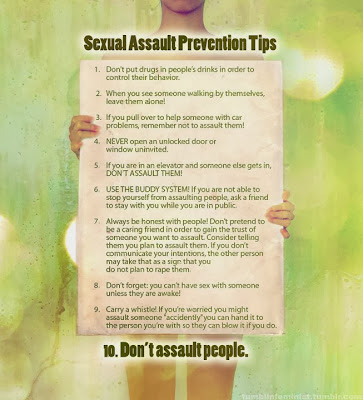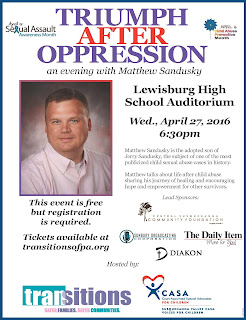"Blurred Lines," Consent, and Questions
One of the songs of the summer, “Blurred Lines”, by Robin
Thicke, Pharrell, and T.I. is igniting a discussion about pop culture, consent
and sexual assault. The song and video
were initially criticized for the use of gratitutous nudity—the entire video
consisted of young women walking and dancing nude around 3 fully clothed men
(Robin Thicke, Pharrell and T.I.). The
video was removed, and then restored on Youtube. The record label also released a version in
which the women wear clear plastic and white clothing. Of course, the entire video is ripe with
material to be viewed and criticized from a feminist viewpoint. (i.e. the women are nude/partially clothed,
the men are fully clothed, the interaction and gazes between the males and
females, the words written on balloons referencing Robin Thicke’s anatomy,
etc., etc.)
Robin Thicke has gone on record citing his wife’s approval
as a reason that other women should not be offended. Just because one person is not offended, that
does not dictate other people’s ability or right to be offended. Thicke must understand that this song and
video were not created in or consumed in a vacuum. There are pre-existing notions and problems
with women’s sexuality and freedom of expression, consent and sexual assault,
and feminism in general.
Fun and Games
One of the things I would like to comment on specifically is
this video’s place in a long list of music videos and songs that play or prey
on a woman’s sexuality and a man “allowing” her to explore it. Lots of songs that have come under fire for
their portrayals of women cite that it’s all fun, and it’s just men and women
having fun and exploring their sexuality together. While I admit, that is a wonderfully
entertaining and hopeful scenario; I cannot agree that is what is taking place
in many of these videos. Critical viewers
would see that many of these songs encouraging women to explore their sexuality
are performed by men. It seems as if we as women are
still being told that the only time it is safe or encouraged to explore our
sexuality is when we are given permission by men, and specifically those men
who perceive they will benefit from this exploration.
There is a refrain of Pharrell and Robin Thicke singing
“good girl,” as if a woman who does not need permission to explore her
sexuality from a man is not a good girl.
Even the title, “Blurred Lines,” has a negative
connotation. What lines are Thicke
referring to? The line between good and
bad girls? The line between playful
scenarios and actually saying no? (i.e.”
you know you want it”) What about the
line between drunk sex and rape? And how do these lines become blurred? By convincing the other person that it is
okay? These questions have not been
answered by Thicke or any of the other songwriters, but that’s the point. They are allowing listeners to make their own
conclusions, but are upset that not all listeners support blurring these lines.
This song, the others like it, and the others yet to come
need to be examined on a deeper level.
We cannot keep hearing the argument that it’s all fun and games and
leave it at that. Listen to the lyrics,
question the words, and then enjoy, if you so choose.




Comments
Post a Comment